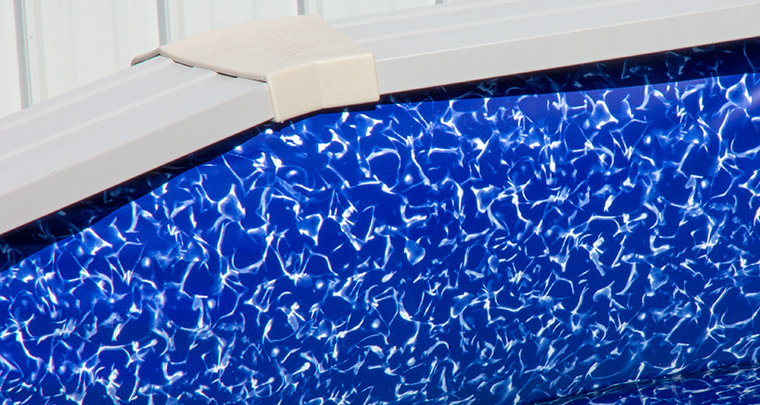 A swimming pool liner is an important investment that is meant to last you several seasons. However, vinyl liners are far from impervious. Improper treatment can drastically shorten the lifespan of your liner, meaning more replacements and higher costs to you over time. These 7 tips will help you protect your investment and extend the life of your pool liner.
A swimming pool liner is an important investment that is meant to last you several seasons. However, vinyl liners are far from impervious. Improper treatment can drastically shorten the lifespan of your liner, meaning more replacements and higher costs to you over time. These 7 tips will help you protect your investment and extend the life of your pool liner.
Wall foam provides a layer between the liner and your pool wall. Installing wall foam before installing a new pool liner keeps the liner from touching the metal walls of an above ground pool, preventing it from coming in contact with any rust or corrosion that may occur.
Chemicals don't just affect your water, but the container holding it. Your liner is in contact with pool chemicals all the time, so it's important to maintain the right balance, lest the chemicals affect the integrity of the liner. Maintain a proper pH, alkalinity, and chlorine levels. High chlorine levels can easily aid in destroying a pool liner faster, so be careful to keep your chlorine within recommended levels. When shocking your pool, be sure to dilute the chlorine shock before adding it to your pool.
If you wish to extend the life of your pool liner, only add one chemical to your pool water at a time. Don't add every chemical you intend to add simultaneously. Instead, work on one chemical at a time. Allow that chemical to circulate through your pool and mix properly before adding the next chemical. This will keep the chemicals from mixing improperly (or mixing in too strong of a concentration in one area) and damaging any part of your pool, including the liner.
If you live in an area with climates cold enough to close your pool, the use of a winter cover helps to keep your liner protected for several months of the year. Preventing exposure to the cold and snow will dramatically extend the life of your pool liner.
Remove items which may be prone to puncturing your pool liner. Sharp objects can easily puncture the vinyl of the liner. Branches, rocks, and other backyard elements may prove to cause a hazard in the wrong situations. Clear your pool area of any unnecessary sharp objects and remove branches and rocks that are nearby. Archery may also not be the best sport to practice near your pool.
Even if they are good swimmers, dogs can propose a risk to a vinyl liner. Nails left untrimmed are quick to puncture a liner. Even if trimmed, scratches can lead to punctures. If you wish to extend the life of your pool liner, your safest bet is to leave the pets out of the pool entirely.
If you see a drastic change in water level (that cannot be attributed to splashing and swimming), then you may have a leak. Check often to treat any leaks as early as possible before they become irreparable. Small leaks can often be repaired with a patch kit or a liquid leak sealer without needing to drain your pool and replace the liner. With a watchful eye and a bit of preventative maintenance, you'll get many more years of life out of your liner.